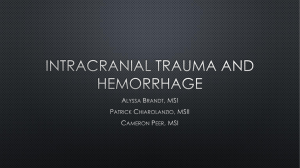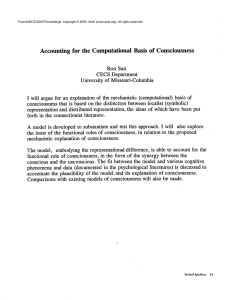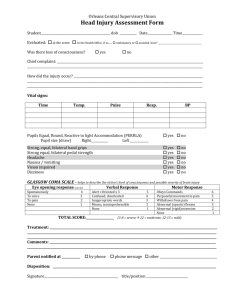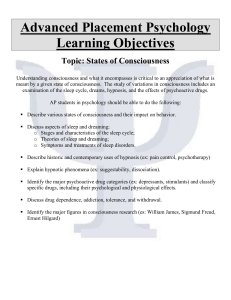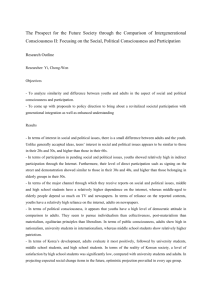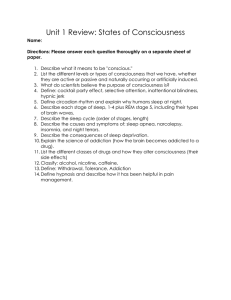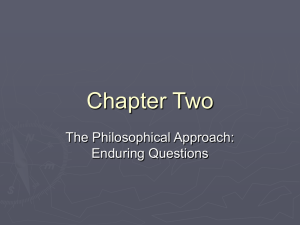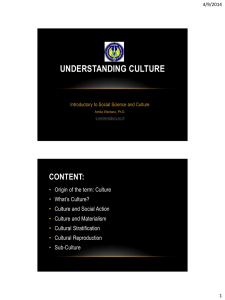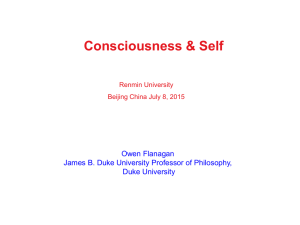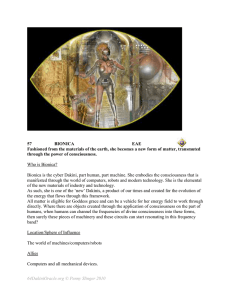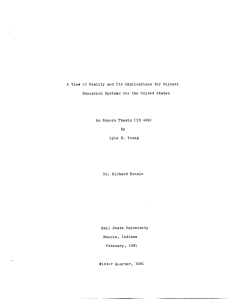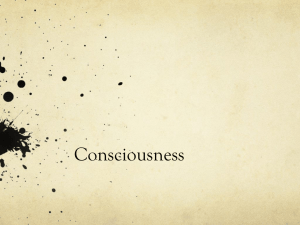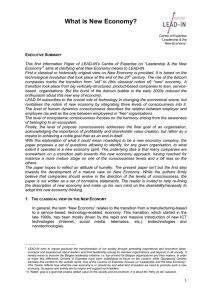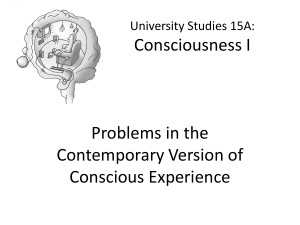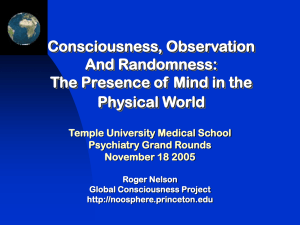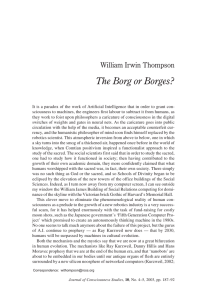States of Consciousness
advertisement
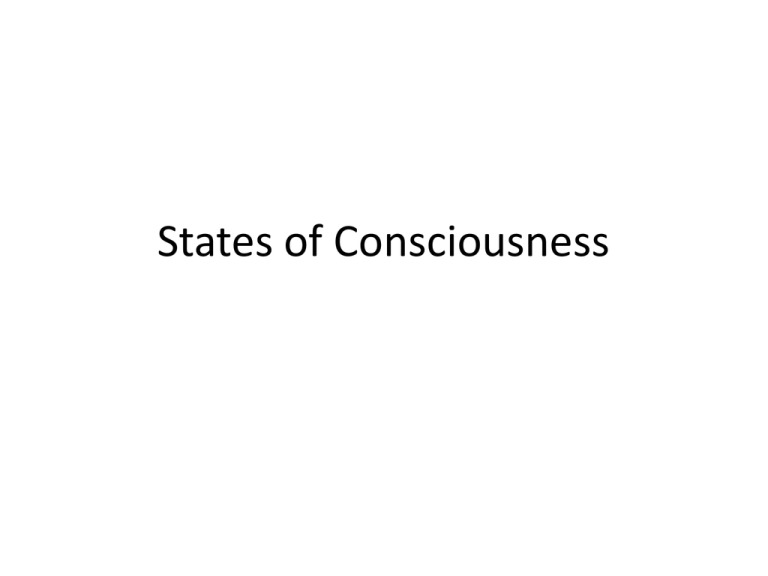
States of Consciousness • Does consciousness exist? If so, how do we study it? • Consciousness looked at as a psychological Construct – a concept used to talk about something we can’t see, touch or measure 2 main meanings • 1) Consciousness as sensory awareness. – Awareness of your environment • 2) Consciousness as direct inner awareness – Imagination – Awareness of feelings, memories Levels of Consciousness • 1) Consciousness – regular awareness • 2) Preconscious – not in your awareness currently, but can recall answers if you need to by diverting inner awareness or attention • 3) Unconscious – also known as subconscious – Freud suggested that the subconscious is unavailable to awareness most of the time – Defense Mechanisms • 4) Non-conscious – basic biological functions Defense Mechanisms • Painful, problematic memories are hidden in subconscious • Some impulses are considered unacceptable • We bury these problems so that we are unaware of them at a conscious level • Repression – takes anxiety causing ideas and pushes them into the subconscious, occasionally they burst out in a different form. • Rationalization – uses self-deception to justify unacceptable behavior or ideas – Sour grapes is a type of rationalization • Displacement – transfer of idea or impulse from threatening or unsuitable object to less threatening object – Boss yells at you – you yell at spouse – spouse kicks dog • Regression – return to behavior characteristic of an earlier stage of development • Projection – project impulses or anxieties outward unto others. People see their faults in others. • Reaction formation acting contrary to genuine feelings to keep feelings hidden. • Denial – refuse to accept reality • Sublimation – Channeling aggressive or unacceptable ideas or traits into acceptable behavior • Compensation – a person makes up for felt defect (real or imagined) by striving extra hard in another area • Conversion – expresses emotional conflicts through physical symptoms • Fantasy – daydreaming, flight of fancy • Defense mechanisms are common – abnormal only when it is excessive • Are they helpful or harmful?
